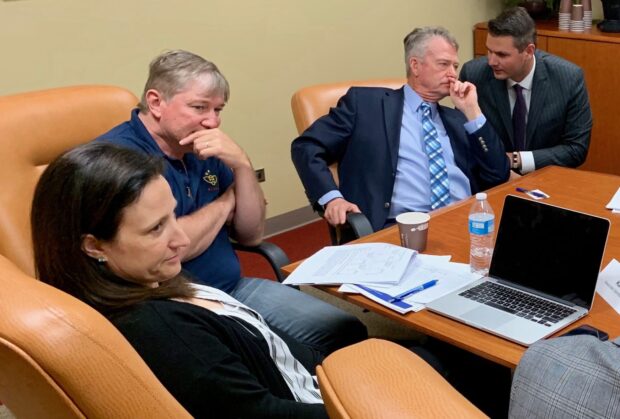Gov. Brad Little’s K-12 education task force will rely on smaller, specialized subcommittees to develop recommendations to bring before the full task force.
The second of the task force’s four subcommittees, focused on the educator pipeline, met for about six hours Tuesday in Boise.
During the meeting, the subcommittee listened to school superintendents sound off on a host of issues ranging from teacher pay, recruitment, retention, school funding, class size, certification, four-day school weeks, student achievement, professional development and master educator premiums.
West Side Superintendent Spencer Barzee, Melba’s Andy Grover, Moscow’s Greg Bailey and Kimberly’s Luke Schroeder attempted to demonstrate the challenges that Idaho schools face recruiting and retaining teachers.
While there are more certified Idaho teachers (about 30,000) than there are teaching jobs (about 19,000), several districts face hardships filling individual positions.
Barzee said his small, southern Idaho district faces competition from districts in Utah and Idaho alike.
“One thing I said we’d never do but that we are now considering is transitioning to a four-day week,” he said. “Every district that borders us is a four-day week. We never felt it hurt us in recruitment and retention until recently.”

The pipeline subcommittee didn’t make any recommendations Tuesday. Instead, some of the meeting was devoted to reviewing previous initiatives from former Gov. Butch Otter’s 2013 Task Force for Improving Education and the development of the 2015 career ladder salary law.
But Greg Wilson, Little’s education liaison, said he wants the current task force to take a different approach instead of issuing 20 wide-ranging reform recommendations like the 2013 task force did.
Instead, Governor Little wants the task force to provide no more than five or six precise recommendations that are designed to help Idaho schools, students and teachers achieve those goals.
Wilson said the group should view every decision through two lenses:
- Where do we want Idaho to be with early literacy and English language arts proficiency in five years?
- Where do we want Idaho to be with college and career readiness in five years?
“In 2013 with the 20 recommendations, that was a different point in time,” Wilson said. “We want to be more narrowly focused and focus on things that will move the needle and make a big difference over the next five years.”
The Our Kids Idaho’s Future task force meets again July 1 in Twin Falls. The educator pipeline subcommittee reconvenes July 16.
Continue to follow Idaho Education News this summer for coverage of the education task force and its recommendations.
